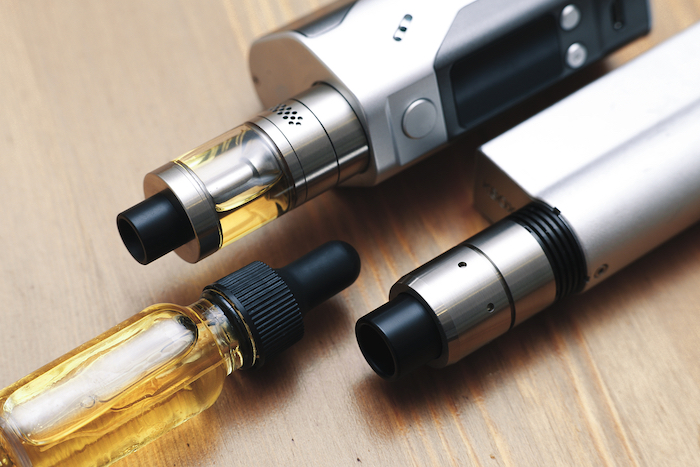New research published yesterday in the New England Journal of Medicine sheds some light on the recent vaping deaths. Seventeen cases examined by Mayo Clinic show lung damage similar to chemical burns from toxic fumes or even mustard gas.
In these 17 cases, 70% had a history of vaping marijuana or cannabis oils; 30% didn’t. Most patients were young adult men, but not all. Some used manufactured prepackaged vape pods. Others used open access tank style vaporizers. Eight of the cases had been smokers in the past; 9 had not smoked tobacco.
Decoding a public health crisis is rarely simple or straightforward.
Last week, Anne Schuchat, principal deputy director of the Centers for Disease Control and Prevention (CDC), testified before Congress about the number of severe vaping-related illnesses. Today the CDC’s website reports 805 lung injury cases reported from 46 states and 1 U.S. territory. Twelve deaths have been confirmed in 10 states. (The Mayo Clinic cohort included eleven patients that met CDC criteria for a “confirmed” diagnosis of vaping-related lung injury, and six patients meeting CDC criteria for a “probable” designation.)
There are many variables at play that public health researchers are trying to tease apart: What liquids are being used? Where did they came from? Which devices were used? How are those devices made? and many more.
But one point that has surfaced again and again in the research is the number of young people now using vaping devices. Twenty-two percent of the lung injury cases reported to the CDC were in patients between 18-22 years old; 16% were in patients younger than 18.
Last month NIH shared data from the 2019 Monitoring the Future Survey of eighth, 10th and 12th graders. The findings show alarmingly high rates of e-cigarette use compared to just a year ago, with rates doubling in the past two years.
“With 25% of 12th graders, 20% of 10th graders and 9% of eighth graders now vaping nicotine within the past month, the use of these devices has become a public health crisis,” said National Institute on Drug Abuse Director Dr. Nora D. Volkow when the data were made public. “These products introduce the highly addictive chemical nicotine to these young people and their developing brains, and I fear we are only beginning to learn the possible health risks and outcomes for youth,” she continued.
It took years to fully comprehend how devastating smoking can be to our health. Now we know tobacco smoking costs our healthcare system an astounding $170 billion per year and leads to hundreds of thousands of deaths. While vaping is surrounded by many unknowns today, we do know that nicotine is highly-addictive and detrimental to developing brains.
In a letter to editor of the New England Journal of Medicine two weeks ago, scientists from the University of Michigan, Ann Arbor who coordinated the Monitoring the Future survey wrote: “Of particular concern are the accompanying increases in the proportions of youth who are physically addicted to nicotine, an addiction that is very difficult to overcome once established,” they write. “New efforts are needed to protect youth from using nicotine during adolescence, when the developing brain is particularly susceptible to permanent changes from nicotine use and when almost all nicotine addiction is established.”
These scientists are absolutely right. Vaping and the nicotine addictions it spawns will prove costly to future generations.
In Tennessee, one immediate—if partial—solution is to increase the minimum age for tobacco sales including vaping from 18 to 21.
Earlier this year NashvilleHealth, a community collaborative I founded in 2015, partnered with the Campaign for Tobacco Free Kids and CityHealth, an initiative of the de Beaumont Foundation and Kaiser Permanente, to survey Tennesseans about strengthening tobacco and e-cigarette policy in our state.
We found that support for raising the vaping and tobacco sales age from 18 to 21 is broad and deep across the state, crossing partisan, ideological, demographic and geographic lines. Our poll showed 63% of Tennessee voters support increasing the minimum age for tobacco sales from 18 to 21, and 86% believe vaping products and e-cigarettes should be included.
It is time to take action.



